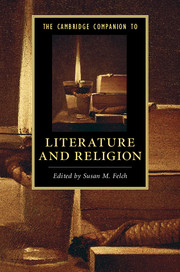5 - Dwelling
from PART II - INTERSECTIONS
Published online by Cambridge University Press: 05 September 2016
Summary
In earlier eras, “dwell” and “dwelling” were not especially literary words. Variations occur more than eighty times in the plays of Shakespeare, and his clown Audrey in As You Like It would not have called it “poetical”: “I do not know what ‘poetical’ is. Is it honest in deed and word? Is it a true thing?” (III.iii.14–15). Today, “dwell” and “dwelling” have indeed become “poetical,” thanks to their frequent appearance in the King James Bible and the impact of Martin Heidegger's 1951 essay “Building Dwelling Thinking.” A Google search of “dwelling” yields a mix of etymological and semantic, architectural and legal, and religious and charitable hits, often around housing and hospice, disclosing a zone shaped by literary diction, design discourse, and congregational projects aimed at living (and dying) well. In this chapter, I follow the migrations of dwelling in religion, philosophy, and architecture. I then turn to dwelling in the Book of Jonah and Shakespeare's rewriting of Jonah in his late play Pericles. The arts of dwelling establish human bonds out of and around our requirements for shelter, sustenance, and succor. Acts of dwelling focus on members of the household but extend – or pointedly refuse to extend – to neighbors and strangers. Dwelling cultivates a sense of place while incorporating an awareness of transit into the practices of home-making through stories of arrival and departure, images of plenty and dearth, and scripts of valediction and benediction. In exploring dwelling's work with and on its own limits, I demonstrate a bilateral approach to religion and literature in which each sphere modifies the other in a manner that invites artistic experiment, imaginative recreation, and communal reconstitution. To read religion with and as literature is to approach Scriptural texts in a nonsectarian and postsecular mode; to read literature with and as religion is to access poetic texts not primarily historically or formally, but as offering schemes for cohabitation in a world in which we dwell together, precariously.
In English Old Testaments, the word “dwell” most frequently translates the Hebrew root y-sh-v, which also means “to sit.” Yoshev is attached to acts of sojourning as well as permanent residence; in Genesis 4:20, Yaval is “the father of such as dwell in tents, and of such as have cattle.”
- Type
- Chapter
- Information
- The Cambridge Companion to Literature and Religion , pp. 86 - 102Publisher: Cambridge University PressPrint publication year: 2016

